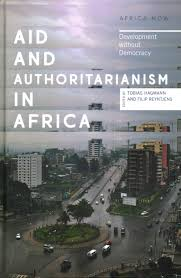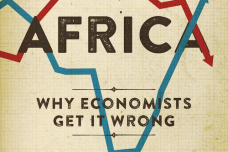Book: Aid and Authoritarianism in Africa

Aid and Authoritarianism in Africa by Tobias Hagman and Filip Reyntjens, publisher: Zed Books, London.
Anyone who instinctively thinks the governments of prosperous nations should give 0.7% of their GDP (a goal promoted by Tony Blair, David Cameron and others) in foreign aid should read this book. Far from spreading democracy and prosperity, government-to-government development aid can embolden and entrench the worst authoritarian regimes.
Dictators may use direct budget support from wealthy nations to (sometimes) provide education and health. But, this series of essays argue, by removing that responsibility from authoritarian governments, we remove the ability of citizens to hold their rulers to account and to demand transparency. Aid used by dictators also allows regimes to award jobs, contracts and licenses to their party supporters. Consequently, our aid fosters a resilient, stable, if sinister, political order, backed by well-armed security services, with little fear of political or social backlash that might lead to change benefiting citizens.
Western nations show a "predilection for authoritarian governments," because the "technocratic" dictators running them speak the correct "modern" jargon, convincing donor nations that they will use the funds efficiently. The wealthy world also likes bolstering regimes that send their soldiers to fight the war on terror in place of their own soldiers; that buy their weapons; and allow Western companies to exploit their natural resources.
"Development programmes financed by foreign donors and implemented in or by undemocratic administrations are characterized by an almost complete lack of accountability," writes Reyntjens: your taxes at work.
It is apparent that the developed world's best intentions may be undermined by the naïve or wilful ignorance of national or multilateral aid agencies handing money directly to autocratic foreign governments. Worse, the same donor countries are reluctant to admit they have backed a repressive regime because it undermines their policies (another way to say "egg on face"). Moreover, local aid agency offices tend to downplay the extent of corruption and brutality, wanting to maintain their budget levels and career prospects. Many Western donor nations have also ditched attaching conditions (such as election term limits, free media, freedom of religion and a respect for human rights) because they know the Chinese and private capital can be tapped by dictators looking for loans.
The authors examine Mozambique, Angola, Uganda, Ethiopia, Cameroon and Rwanda, concluding that aid would be better spent helping flawed democracies like Ghana, Senegal, Zambia and even Nigeria that are, at least, making an effort to be democratic, and reflect the dynamism of their young people and urban dwellers.
The good news is that the most consistent growth in Africa comes from Botswana and Mauritius, two of its strongest democracies. Hence, if a Western nation wishes to support democracy and human rights, it should bolster African countries heading in the right direction, rather than imagining democracy will necessarily follow the type of economic growth that rarely benefits the ordinary citizen.
The essays are by academics, and hence are not easy reading. However, they are enlightening and disturbing. Unfortunately, it was beyond the scope of the book to examine the relative merits of foreign aid delivered by faith groups and Western charities. Yet, most impartial observers familiar with Africa will know that these NGOs, make a disproportionate and positive contribution to the well-being of African citizens, if not their thuggish rulers.
Rebecca Tinsley's novel about Sudan, When the Stars Fall to Earth, is available on Amazon.


















